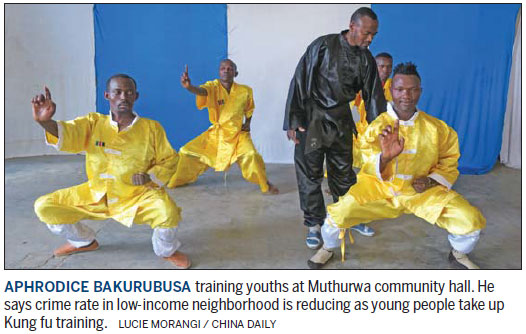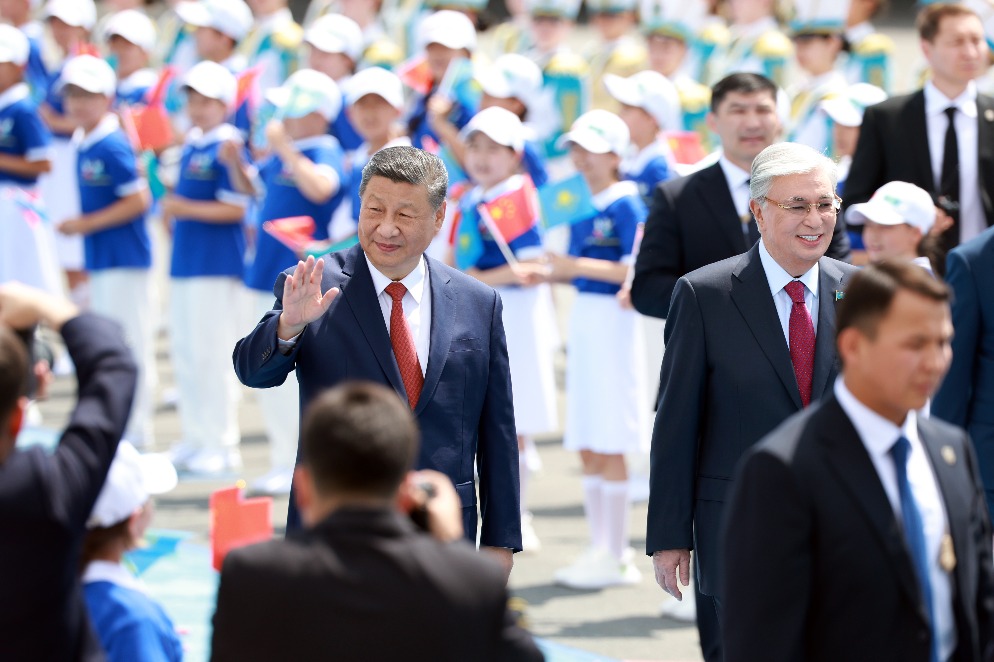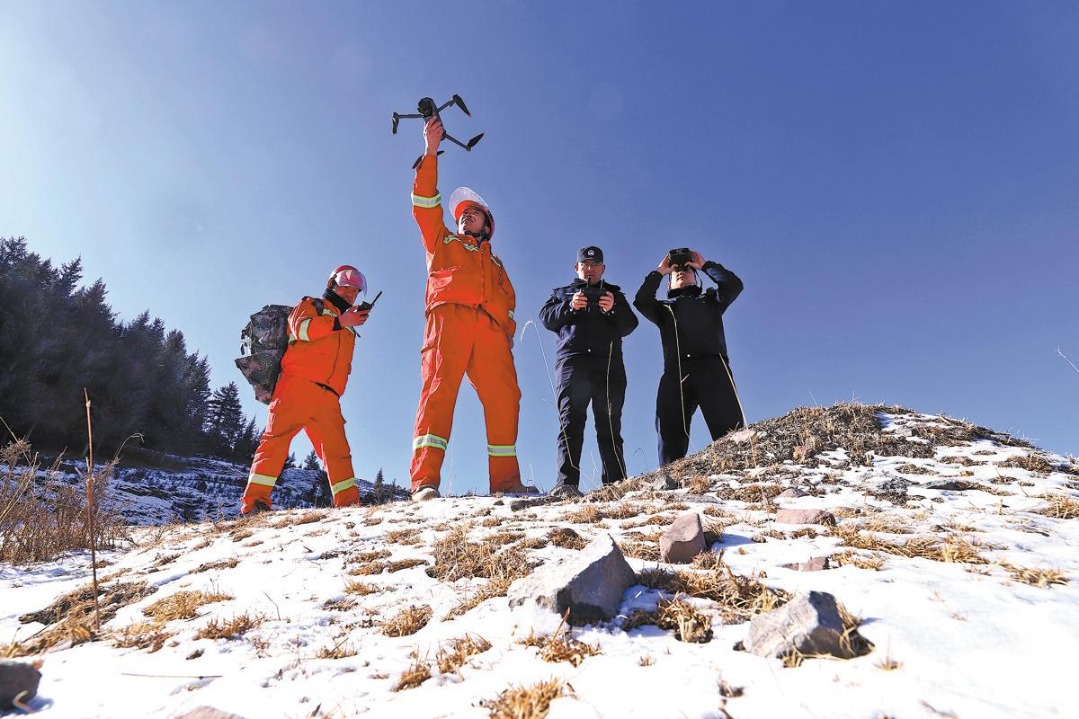Unruly youths getting their kicks from kung fu

Kung fu movies have always been popular with young people in Africa.
The idea of restoring peace and justice in environments plagued by instability and injustice strikes a chord with the young, estimated to be 60 percent of the total population.
Challenges such as unemployment and underemployment have left many young people feeling marginalized.
Aphrodice Bakurubusa, a kung fu master in Kenya, is using the Chinese martial art to help stem the trend of youths falling into bad behavior.

Kung fu is a learning or practice that demands patience, energy and time for the student to achieve proficiency. It originated at the Shaolin Temple in Central China, where monks have used it for health and self-defense.
The 36-year-old Rwandan-born shifu - as masters are known - says the discipline is already having a significant impact among Kenyan youths. Violence in the city's most insecure neighborhood, where he lives, has halved as youths take up kung fu training.
"There are fewer mugging incidents around Dandora, a suburb about 45 minutes east of downtown Nairobi. The youths have reformed and embarked on a more productive career path," he says, smiling. "And for those who have tried mugging me, I think they'll never try again!"
The United Nations projects that by 2020, three-fourths of Africans will have an average age of 20. The biggest young population in the world presents economic and social challenges as well as implications for peace and security. High vulnerability to violence have had a destabilizing effect, leaving a growing number of disaffected and disenfranchised youths.
Bakurubusa has firsthand experience of these problems.
"I was there once," he says. "I overcame these challenges when I joined a kung fu training school in Kigali, Rwanda."
Born in 1980, in Cyangugu, a city in Western Province of Rwanda bordering the Democratic Republic of Congo, young Bakurubusa loved fighting. He would win bets for pencils by asking his fellow students to hit him in the torso. His childhood was, however, interrupted when genocide broke out in 1994.
Like other youths at that time, he took up arms and soon found himself in Kigali. After the violence ended with the ascension to power of President Paul Kagame, Bakurubusa wandered aimlessly, having no wish to resume his education. Instead, he started helping out in a grocery shop and after a while bought a camera, eking a living through photography.
This is when he stumbled across the Shaolin Kung Fu Wushu Kigali School Temple. He spent his spare time training and soon came to the notice of his instructor, Manzi Bosco, who had been trained by a graduate of Shaolin Temple in China.
"He told me I could build my future around training others in this ancient art and, after five years, he sent me off."
In 2005, as a trainer, he started his own school and soon had other trainers passing through his hands. Two years later he relocated to Burundi, where he trained about 300 pupils for two years. He also crossed over to Congo and for five months trained 50 students who already had black belts in karate.
His skills and enthusiasm were noticed and he found himself traveling to Egypt.
"I was employed on a movie set to train the actors. I couldn't believe how far my skills had taken me. It was here that I decided to relocate to the United States."
In 2009, he moved to Nairobi and started his visa application process. This took longer than expected and he soon realized that he was hemorrhaging his hard-earned money. He took up residence in a low-income neighborhood where he came face-to-face with youths who had lost hope of having better lives.
After booking time in the community hall, he soon had a class of 10 kung fu trainees, with each student paying $1 daily. Together with his first graduates, he launched the Kung Fu Wushu Association of Kenya, which soon grew to 10 schools, each with at least 30 students.
"The uptake is high in low-income areas because youths here face high levels of unemployment and underemployment, coupled with high rates of poverty, insufficient education, health and other services," Bakurubusa says.
Lucymorangi@chinadaily.com.cn
(China Daily Africa Weekly 11/11/2016 page21)
Today's Top News
- Xi meets Kazakh President Kassym-Jomart Tokayev
- Xi arrives in Astana for China-Central Asia Summit
- Xi leaves for 2nd China-Central Asia Summit
- China's retail sales grow 6.4% in May
- Separatist acts can't stop civil exchanges
- Sino-Uzbek all-round cultural partnership bridging civilizations






























